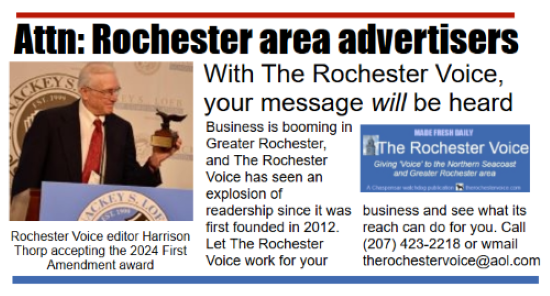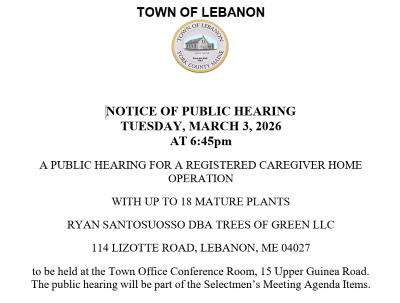Power to the People is a column by D. Maurice Kreis, New Hampshire's Consumer Advocate. Kreis and his staff of four represent the interests of residential utility customers before the NH Public Utilities Commission and elsewhere.
Our pandemic-ravaged state could use some additional economic stimulus right about now. So far, Congress has not been inclined to deliver the goods.
So what if we could do something on the state level? Say, for example, injecting $350 million into the New Hampshire economy over the next three years, most of it spent in a manner that puts local people to work? And what if the net effect of that spending were to save money for every customer of an electric or natural gas utility?
That's exactly the proposal now pending at the Public Utilities Commission - and it's exactly what nine newly re-elected members of the House of Representatives are asking the PUC to put off, indefinitely.
The request came in the form of a letter from eight members of the House's Science, Technology and Energy (ST&E) Committee - plus a very prominent name indeed. The first name on the letter is that of the incoming Speaker of the House, Representative Dick Hinch of Merrimack.
Publicly criticizing the Speaker and eight of his colleagues, all of them veteran ST&E members and one of them (Rep. Michael Harrington of Strafford) a former PUC commissioner, is not something for an appointed state official like me to do lightly. But my job, as head of the Office of the Consumer Advocate, is to advance the interests of residential utility customers.
That mission does not allow me to remain silent in the face of a full frontal attack on the state's ratepayer-funded energy efficiency programs.
Four years ago, the PUC adopted an Energy Efficiency Resource Standard and, with it, the objective of "all cost-effective energy efficiency." This means that what customers fork over, via the energy efficiency charges on their electric and natural gas bills, can only be spent on programs that save customers money overall. The focus on saving all customers money means that the cost-effectiveness test ignores the additional savings achieved by the individual homes and businesses where the energy efficiency measures are installed.
Here in New Hampshire we rely on our utilities to deliver energy efficiency programs, which are marketed under the "NHSaves" banner. On September 1, the utilities filed a three-year energy efficiency plan that would go into effect in January.
The complaining House members - many if not most of them sincere and longstanding opponents of ratepayer-funded energy efficiency -- are right to draw attention to the significant increase the utilities are proposing to the size and scope of the NHSaves programs. But they draw precisely the wrong conclusion.
"The increase in [energy efficiency] charges will impact everyone differently, but some of the state's largest manufacturers (and other high energy users) will pay hundreds of thousands and in some cases millions of dollars more in their electric bills every year," the House members wrote. "This represents possibly a 10-15% increase on electricity costs at a time when many businesses, especially restaurants and other entertainment venues, which are high electricity and gas users, are managing substantial reductions in their revenue streams."
The word "possibly," in relation to alleged increases of 10 to 15 percent in electric bills, should give you pause. The alarmist rhetoric is just that - alarming. The lawmakers are ignoring all of the bill savings that energy efficiency measures yield - again, both for individual customers that receive the measures at their homes and businesses and for all customers as a group.
Recently Eversource, the state's largest utility, signed a settlement agreement in a rate increase now awaiting approval by the PUC. Here's an interesting factoid from that settlement. A really big industrial customer - one using 2.1 million kilowatt-hours a month - would get a monthly bill from Eversource of $211,180.95 under the new rates.
That works out to $2.5 million a year. It's a big number, most of which goes to paying legacy fossil-fuel and nuclear generators (the bulk of them out of state), the owners of the regional transmission grid (including Eversource), and the owner of the distribution system (which, for Eversource customers, is Eversource).
In their laudable zeal to defend the interests of New Hampshire's beleaguered utility customers, especially businesses, these lawmakers do not complain about these massive and ever-rising costs paid to generators and transmission owners. Neither, by the way, did the Business and Industry Association when it filed a similar letter at the PUC on November 10.
Instead, the legislators zero in on energy efficiency. I think, at least in most cases, this reflects a sincere belief that if energy efficiency were so great then principles of free-market economics would naturally drive customers to adopt it.
Fair enough -- but from the perspective of a ratepayer advocate, reality trumps ideology. And the reality is that negawatts - serving the next unit of demand by squeezing more work out of the energy we are already using - are always cheaper than megawatts. That's true unless you use the kind of math that counts costs but ignores benefits.
Please forgive me for yet again getting a bit law professor-ish, but I do have to add one more point. Although the PUC is an independent body, structurally it is part of the executive branch. And separation of powers is a thing.
All of the PUC's authority is delegated to it by the General Court, but once the Legislature has told the PUC what to do via duly enacted statutes, it's not cricket for lawmakers, be they Democrats or Republicans, to send additional guidance to the agency on an ad hoc basis. That's especially true when the guidance is coming from only 2.25 percent (9 out of 400) of just one of the General Court's two lawmaking bodies.
You may disagree with me, in which case you probably want to know who besides Representatives Hinch and Harrington deserve credit for the letter. The other seven signatories are Rep. Glen Aldrich of Gilford, Rep. Troy Merner of Lancaster, Rep. Jeanine Notter of Merrimack, Rep. Russell Ober of Hudson, Rep. Fred Plett of Goffstown, Rep. Doug Thomas of Londonderry, and Rep. Michael Vose of Epping.
Good folks all - but, in this instance, all wrong.














